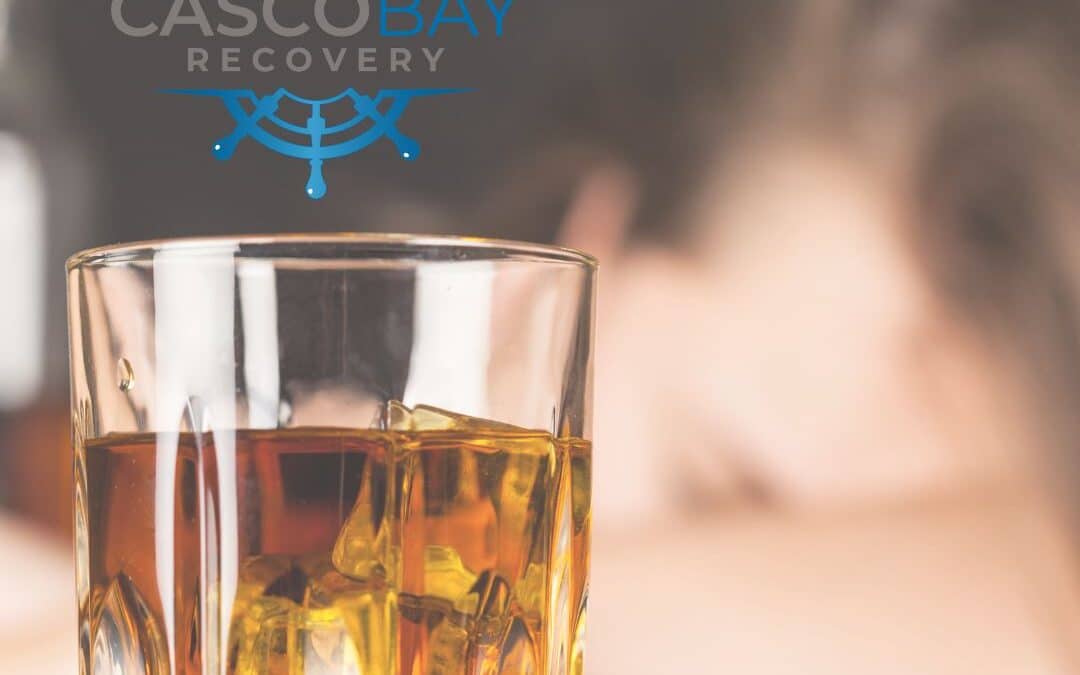Overview of Inpatient and Intensive Outpatient Programs (IOP)

When you’re seeking addiction treatment in Maine, understanding the difference between inpatient rehab and an intensive outpatient program Maine offers can make all the difference in your recovery journey.
Inpatient rehab requires you to live full-time at a treatment facility for the duration of your program. You’ll receive round-the-clock medical supervision, structured therapy sessions, and complete immersion in a recovery-focused environment. This residential approach removes you from daily triggers and stressors while you focus entirely on healing.
An intensive outpatient program (IOP) takes a different approach. You’ll attend treatment sessions multiple times per week—typically 9 to 20 hours total—while continuing to live at home. This structure allows you to maintain work responsibilities, family commitments, and other aspects of your daily life while receiving professional support.
The core difference between inpatient or IOP rehab comes down to intensity and structure:
- Inpatient programs provide the highest level of care with 24/7 support in a controlled setting.
- IOP offers significant therapeutic intervention but with the flexibility to apply recovery skills in real-world situations immediately.
Your choice depends on factors like:
- Addiction severity
- Medical needs
- Home environment stability
- Whether you’ve completed previous treatment programs
Inpatient Rehab: Comprehensive Care for Severe Addiction
Inpatient rehab represents the most intensive level of addiction treatment available. When you enter residential addiction treatment, you live full-time at our facility, completely removed from the triggers, stressors, and environments that contributed to your substance use. This immersive approach allows you to focus entirely on your recovery without the distractions and temptations of daily life.
The cornerstone of inpatient care is 24-hour medical care. Our medical team monitors you around the clock, providing immediate intervention during detoxification and addressing any complications that arise. This level of supervision becomes critical when you’re dealing with severe withdrawal symptoms or co-occurring medical conditions that require constant attention.
Detoxification Maine residents receive at our facility goes beyond simply managing withdrawal. The controlled environment ensures your safety during this vulnerable period while our staff addresses the physical and psychological aspects of dependency.
Treatment duration typically ranges from 28 days to six months, depending on your specific needs. During your stay, you participate in:
- Detox protocols that safely manage withdrawal symptoms
- Trauma-focused therapy to address underlying psychological wounds
- Behavioral coping skills training for real-world application
- Family therapy sessions that repair relationships and build support systems
This comprehensive approach tackles addiction from multiple angles, giving you the tools and foundation needed for sustained recovery. You’re not just getting clean—you’re rebuilding your life from the ground up in a safe, supportive environment.
Intensive Outpatient Program (IOP): Flexible Treatment with Support
An intensive outpatient program offers a different path to recovery—one that allows you to maintain your daily responsibilities while receiving structured addiction treatment. When you’re searching for IOP programs in Portland ME, you’re looking at a treatment model that meets you where you are in life.
Intensive outpatient program Maine facilities typically require you to attend treatment sessions 3-5 times per week, with each session lasting 2-4 hours. You’ll participate in group therapy, individual counseling, and relapse prevention education during these scheduled times. The rest of your day remains yours—you can continue working, caring for your family, or attending school.
This treatment structure works particularly well if you’re dealing with early-stage addiction and haven’t developed severe physical dependence. You might also find IOP suitable if you’ve recently completed inpatient treatment and need continued support as you transition back to everyday life. Many people use IOP as a step-down program after residential care, maintaining therapeutic momentum while gradually reintegrating into their communities.
IOP also serves those who’ve experienced relapse and need to rebuild their recovery foundation. The program provides accountability and professional guidance without requiring you to leave your home environment. When you’re asking yourself “What’s the best treatment option for my addiction?”, consider whether you have a stable living situation and a support network at home—these factors significantly influence IOP success rates.
Key Differences Between Inpatient and IOP Treatment
When you’re weighing inpatient vs IOP options, understanding the concrete distinctions helps you make an informed decision about your recovery path.
Care Intensity
The difference between inpatient and outpatient treatment centers primarily on care intensity. Inpatient programs provide round-the-clock medical monitoring, with clinical staff available at all hours to address withdrawal symptoms, mental health crises, or medical complications. You receive structured programming throughout the day—often 6-8 hours of therapy, group sessions, and skill-building activities. IOP operates on a different schedule, typically requiring 9-12 hours of treatment per week spread across 3-4 days. You attend your sessions and return home, managing your daily responsibilities between appointments.
Residential Component
The residential component creates another fundamental divide in inpatient or IOP rehab considerations. Inpatient treatment removes you from your current environment entirely. You sleep, eat, and participate in all activities within the facility’s controlled setting, eliminating access to substances and separating you from triggers. This immersive approach creates a protective bubble during your most vulnerable early recovery period.
IOP keeps you embedded in your regular life. You sleep in your own bed, maintain your job or school commitments, and navigate real-world situations while receiving treatment support. This arrangement tests your coping skills in actual circumstances rather than a sheltered environment, building practical resilience you’ll need long-term.
Assessing Personal Needs to Choose the Right Program
Choosing the best treatment option for my addiction requires honest self-evaluation and professional guidance. You need to consider multiple factors that directly impact which level of care will give you the strongest foundation for recovery.
1. Severity of Your Addiction
Severity of your addiction plays a critical role in determining appropriate care. If you’re experiencing severe physical dependence, dangerous withdrawal symptoms, or your substance use has become life-threatening, inpatient treatment provides the medical safety net you need. When you’re struggling with moderate addiction or you’ve completed detox and need continued support, IOP offers structured treatment without removing you from your daily life.
2. Co-occurring Mental Health Conditions
Co-occurring mental health conditions significantly influence treatment recommendations. If you’re dealing with severe depression, anxiety, PTSD, or other psychiatric disorders alongside addiction, the 24/7 support of inpatient care allows clinicians to monitor medication adjustments and provide immediate intervention during crisis moments. You can address both conditions simultaneously in a controlled setting.
3. Your Treatment History
Your treatment history matters when exploring Maine addiction recovery options. If this is your first time seeking help and your addiction is in earlier stages, IOP might provide sufficient support. If you’ve relapsed after previous outpatient attempts or you’re stepping down from a higher level of care, the program choice shifts accordingly.
4. Your Living Environment
Your living environment also deserves consideration. When your home situation includes active substance use, unsupportive relationships, or significant triggers, residential treatment removes you from these risk factors during your most vulnerable recovery phase.
Casco Bay Recovery’s Approach to Tailored Treatment Options
At Casco Bay Recovery, we understand that choosing between inpatient or IOP rehab isn’t a one-size-fits-all decision. Our addiction treatment in Maine begins with a comprehensive clinical assessment that examines your unique circumstances, addiction severity, mental health status, and personal goals.
Our Evaluation Process
Our evaluation process includes:
- Detailed intake interviews to understand your substance use history and treatment background
- Medical and psychiatric assessments to identify co-occurring conditions requiring specialized care
- Risk evaluation to determine the appropriate level of supervision and support you need
- Environmental assessment to gauge whether your home situation supports recovery
Based on these findings, our clinical team recommends the most effective path for your recovery journey. You might start with inpatient care if you need medical detox or intensive stabilization, then transition to IOP as you build confidence and skills.
Evidence-Based Therapies
Casco Bay Recovery treatment options integrate evidence-based therapies like cognitive-behavioral therapy (CBT), dialectical behavior therapy (DBT), and trauma-informed care. When clinically appropriate, we incorporate medication-assisted treatment (MAT) to reduce cravings and support long-term recovery.
Individualized Treatment Plans
We don’t just place you in a program—we partner with you to create a treatment plan that addresses your specific needs, challenges, and strengths. Your recovery deserves an individualized approach, and that’s exactly what we provide.
If you or a loved one is struggling with benzo addiction, our specialized benzo rehab center in Portland, ME can help. For more information about our programs or to get started on your recovery journey, feel free to contact us.
FAQs (Frequently Asked Questions)
What is the difference between inpatient rehab and intensive outpatient program (IOP) in Maine?
Inpatient rehab involves living full-time at a treatment facility with 24-hour medical supervision, focusing on detoxification, trauma work, and family therapy, typically lasting 28 days to six months. In contrast, an Intensive Outpatient Program (IOP) allows patients to attend treatment several times per week while living at home, offering flexibility suitable for early-stage addiction or relapse management.
Who is a suitable candidate for inpatient rehab versus IOP in Maine?
Inpatient rehab is ideal for individuals with severe addiction requiring comprehensive care and continuous medical supervision. IOP is best suited for those with early-stage addiction, managing relapse prevention, or as a step-down from inpatient care, providing structured support while maintaining daily responsibilities.
What services are included in inpatient rehab programs in Maine?
Inpatient rehab programs offer 24-hour medical care, detoxification services, trauma-informed therapy, behavioral coping skills training, and family therapy within a controlled residential environment to ensure comprehensive addiction recovery.
How does Casco Bay Recovery determine whether inpatient or IOP rehab is appropriate for a client?
Casco Bay Recovery evaluates each client through individual assessments considering the severity of addiction, co-occurring conditions, and previous treatment history to recommend the most effective treatment option—either inpatient or IOP—integrating evidence-based therapies and medication-assisted treatments when appropriate.
What are the key differences in structure and intensity between inpatient rehab and IOP?
Inpatient rehab requires full-time residential stay with intensive 24-hour supervision and structured programming. IOP provides flexible treatment sessions multiple times per week while allowing clients to live at home, offering less intensive but consistent support tailored to individual needs.
How long do inpatient rehab programs typically last compared to IOP programs in Maine?
Inpatient rehab programs generally last from 28 days up to six months depending on individual needs. IOP programs vary in duration but usually involve several weeks of treatment with multiple weekly sessions designed for ongoing support during recovery.








